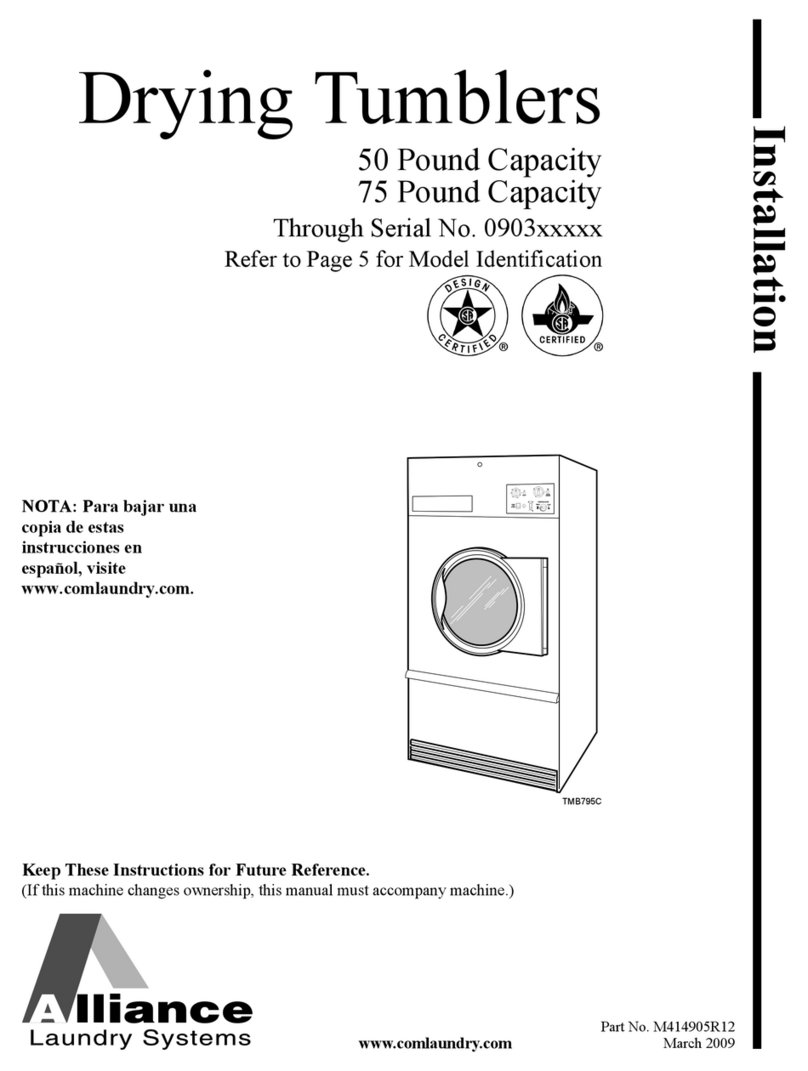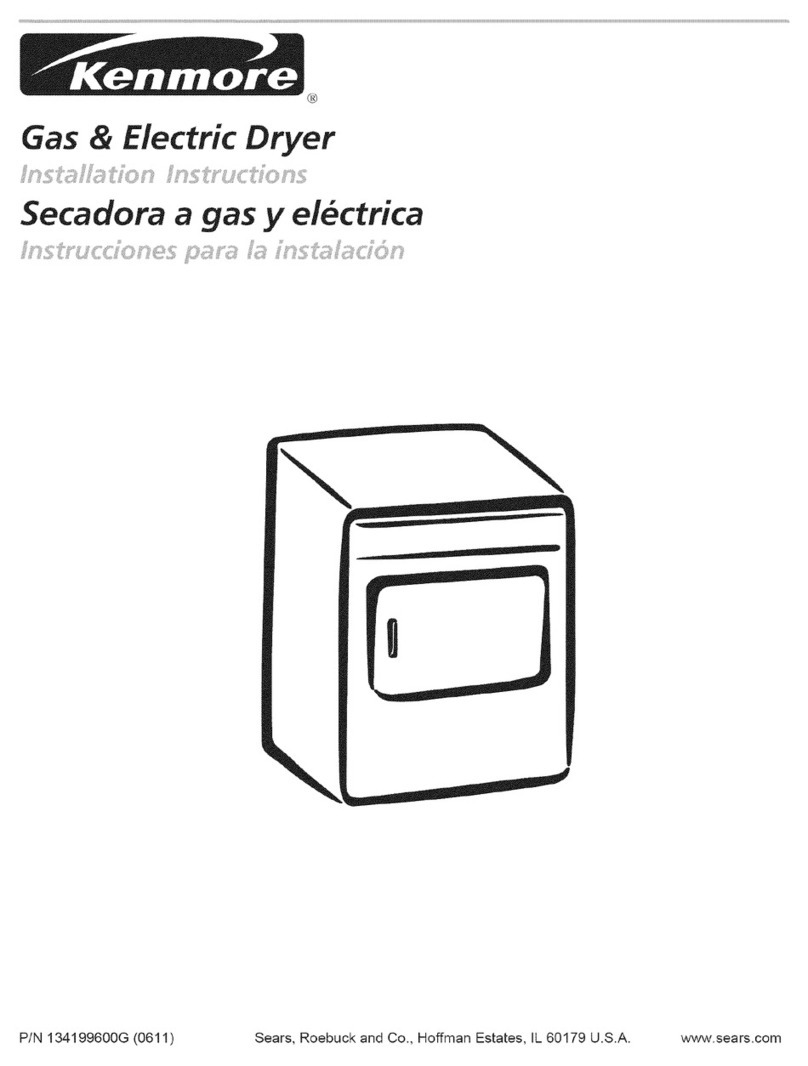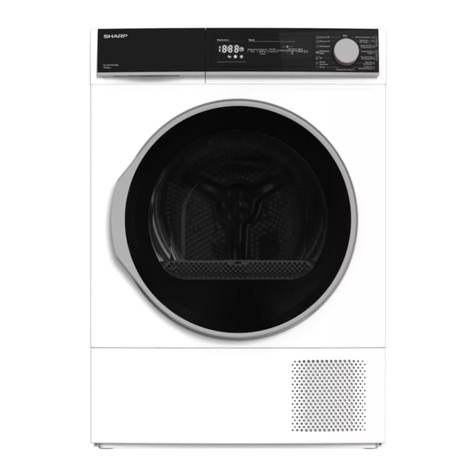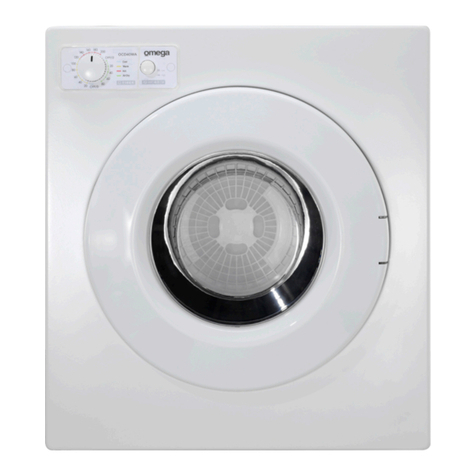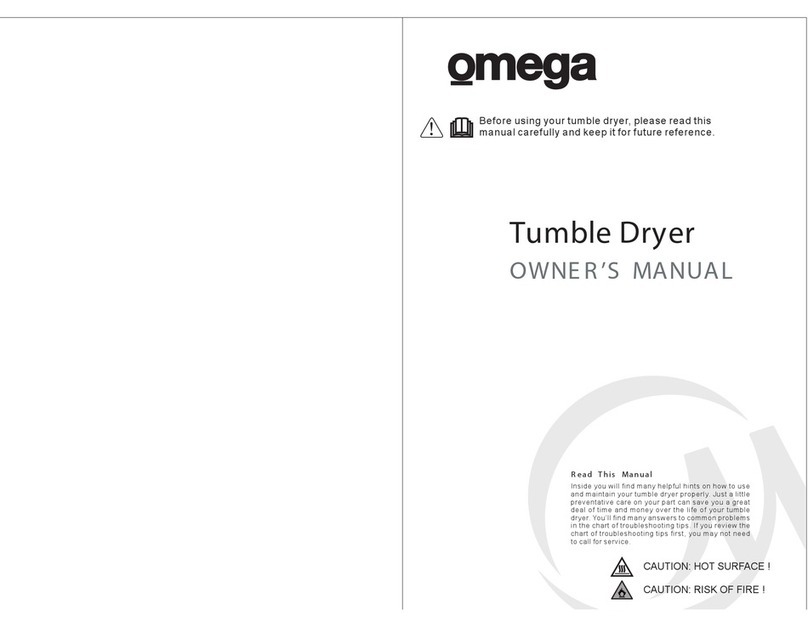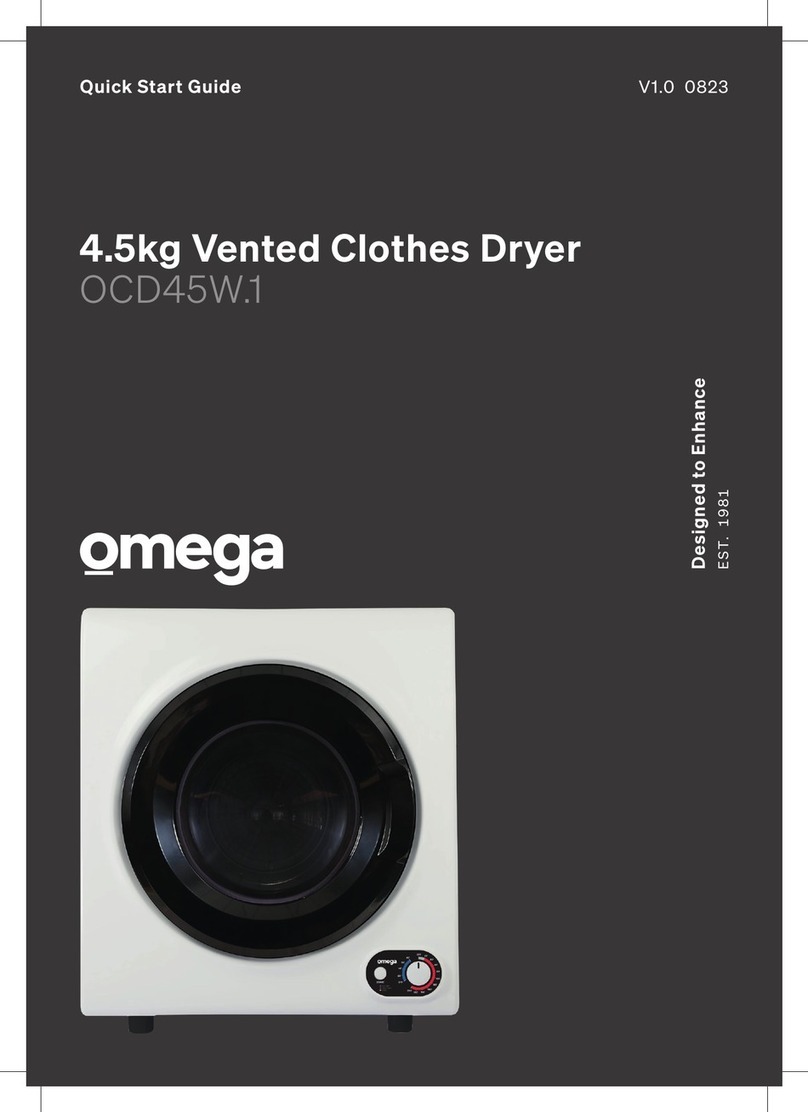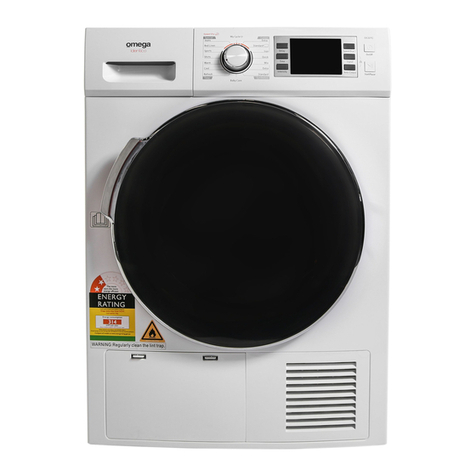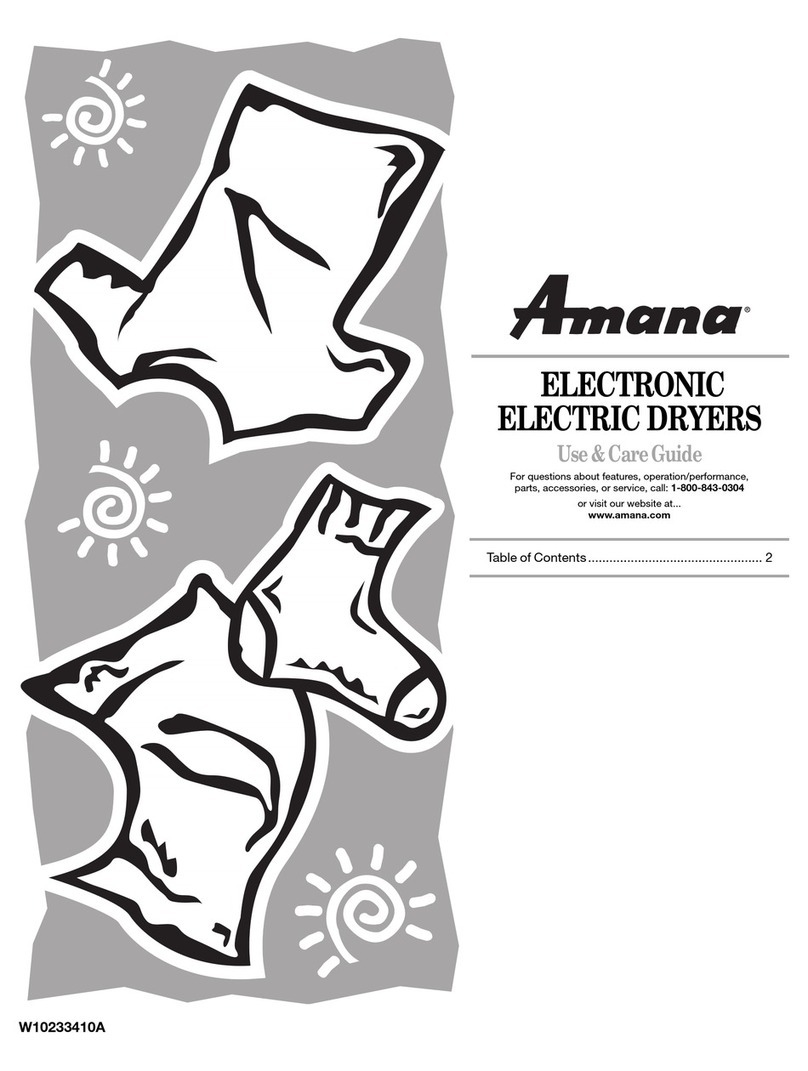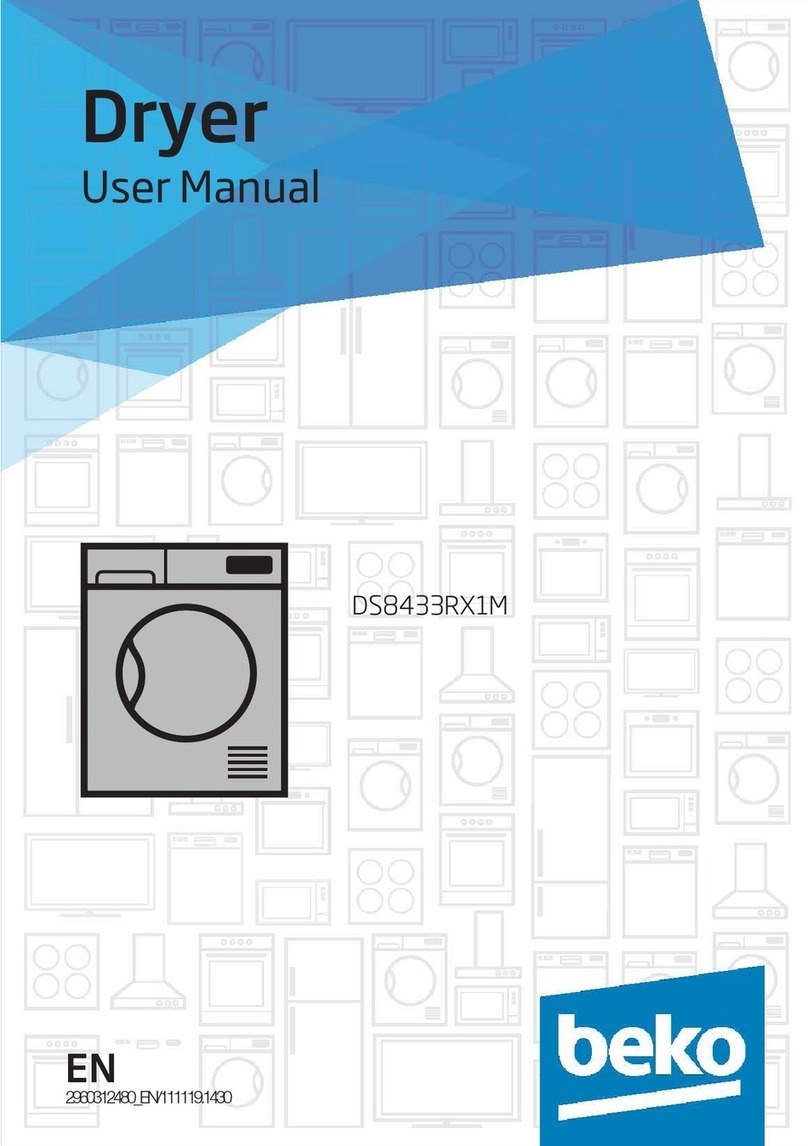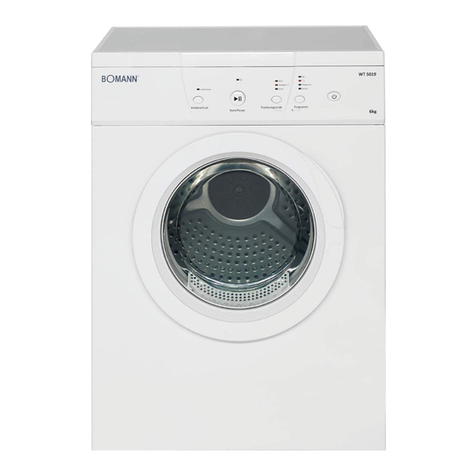• If it is unavoidable that fabrics that contain vegetable or cooking oil or have been
contaminated by hair care products be placed in a tumble dryer they should first be
washed in hot water with extra detergent - this will reduce, but not eliminate, the
hazard.
• Do not dry unwashed items in the tumble dryer.
• Items that have been soiled with substances such as cooking oil, acetone, alcohol,
petrol, kerosene, spot removers, turpentine, waxes and wax removers should be
washed in hot water with an extra amount of detergent before being dried in the
tumble dryer.
• Fabric softeners, or similar products, should be used as specified by the fabric
softener instructions.
• The final part of a tumble dryer cycle occurs without heat (cool down cycle) to
ensure that the items are left at a temperature that ensures that the items will not be
damaged.
• WARNING: Never stop a tumble dryer before the end of the drying cycle unless all
items quickly removed and spread out so that the heat is dissipated.
- Oil-affected items can ignitespontaneously,especially when
exposed to heatsources such asin a tumbledryer. The items
become warm, causingan oxidation reaction in the oil.Oxidation
creates heat. Ifthe heat cannot escape, the itemscan become hot
enough to catchfire. Piling, stacking or storing oil-affected items
can prevent heatfrom escaping and so create afire hazard.
